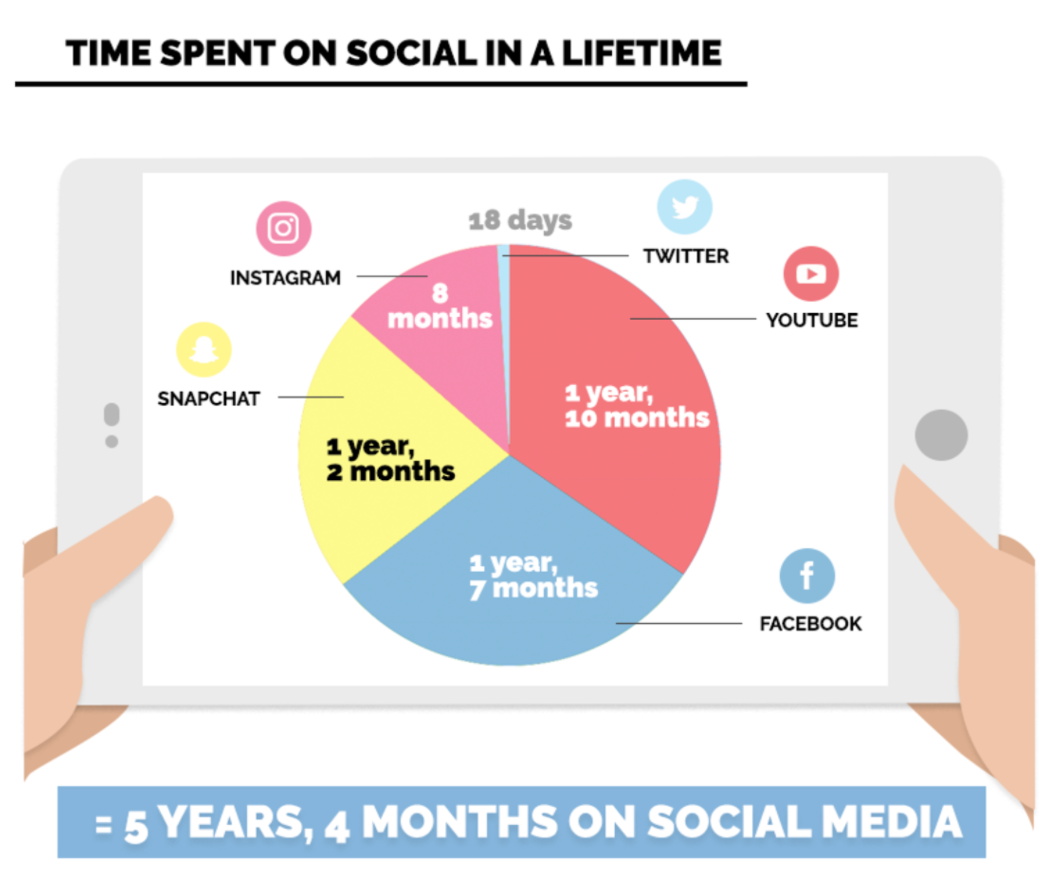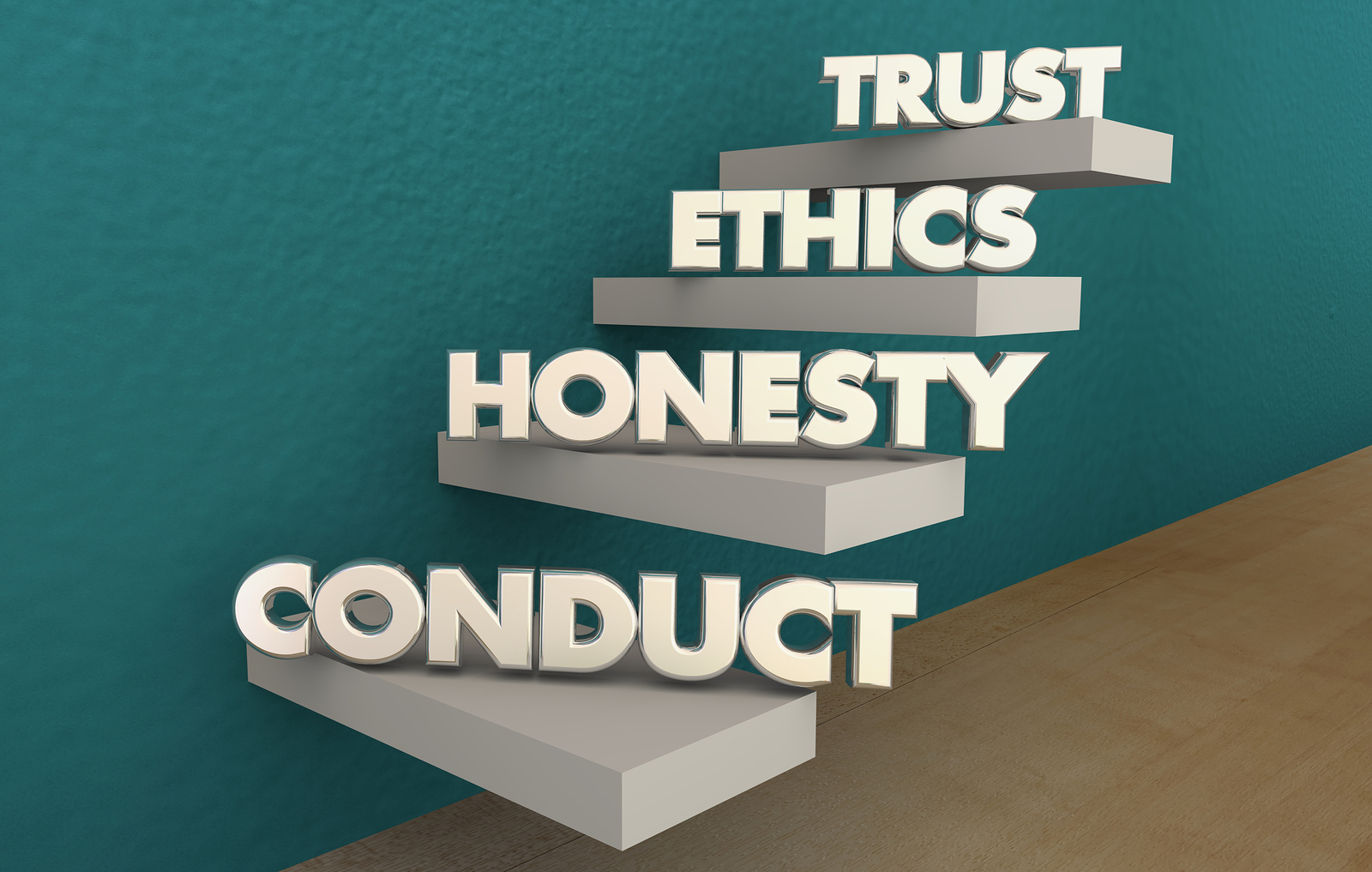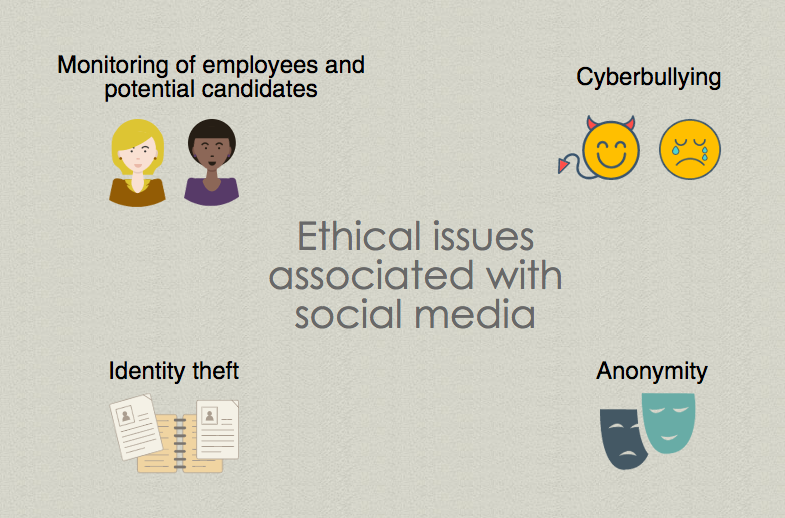Introduction
The global community is becoming more connected and integrated than ever before. Modern technologies and handheld devices are revolutionizing the way individuals exchange their ideas and concepts. The nature of these emerging tools of communication is affecting the true foundation of ethical and moral principles. Some of the concepts that define human interactions are being challenged, such as utilitarianism, virtue ethics, and deontology. Human beings need to consider these ethical principles and learn how they can apply them when using social media networks.
Applying Ethics in Social Media
Human beings live in societies governed by social contracts and ethical values. Such rules dictate the way people communicate with each other, share ideas, and solve their common problems. Communities find practical measures to punish those who do wrong (Abbas et al. 1685). With the average social media user spending over 5 years of his or her lifetime on various platforms (see Fig 1), the global community should be aware of these etiquette and ethical rules and follow them accordingly.

Moral and ethical principles dictate what ought to be wrong, right, acceptable, ad bad. Users of social media need to be aware of such attributes and leverage such resources in a proper manner. By focusing on the ethical behaviors and codes of conduct in their respective societies, such individuals will be required to replicate their actions and thoughts when engaging others (Baier 3). Those who take these issues seriously will promote trust, honesty, conduct, and ethics (see Fig. 1).

Individuals who pursue such attributes seriously will communicate and send messages in an honest manner. They will show the highest level of respect and be willing to learn from each other. Etiquette encourages individuals to showcase their identities and avoid any form of deceit (Abbas et al. 1688). They will remain truthful and transparent. People who consider these principles will find it possible to utilize social media more effectively and realize their group or personal goals.
Key Benefits
Applying utilitarianism means does what could maximize happiness for other online users. These individuals will not harm or interfere with the affairs of others. They will not assault, abuse, or use vulgar language against others. Deontological ethics goes further to encourage people to follow a maxim or do good in such a way that it could become a universal law (Baier 5). The same message emerges from virtue ethics since it focuses on promoting good character. These gains mean that cyber-bullying, identity theft, and stalking will become things of the past (see Fig. 2).

The consideration of these principles means that all users will utilize social media in a manner that is beneficial. All users will find new ways to benefit from their friends and other unknown social friends (Abbas et al. 1691). Those who find themselves in such a community will share ideas with others and eventually trigger mutual benefits. Consequently, more people will be willing to follow such ethical principles, help each other, ad focus on the best outcomes and experiences. These attributes mean that more people will communicate and exchange ideas or information in accordance with the social exchange theory (Baier 7). They will also find it easier to pursue their educational, social, marketing, or business objectives more efficiently.
Conclusion
Users of social media intend to pass their messages across depending on their respective goals. The above analysis explains why there is a need for people to apply the outlined ethical principles and ideas. Those who embrace this message will become trustable and attractive to their online friends or business colleagues. In conclusion, they will connect with others much faster and eventually benefit from long-term partnerships with other users.
Works Cited
Abbas, Jaffar, et al. “The Impact of Social Media on Learning Behavior for Sustainable Education: Evidence of Students from Selected Universities in Pakistan.” Sustainability, vol. 11, no. 6, 2019, pp. 1683-1705.
Baier, Allison. “The Ethical Implications of Social Media: Issues and Recommendations for Clinical Practice.” Ethics & Behavior, vol. 29, no. 11, 2018, pp. 1-11.
Gomez, Stephanie. “Social Media Distractions.” Dental Post, 2017, Web.